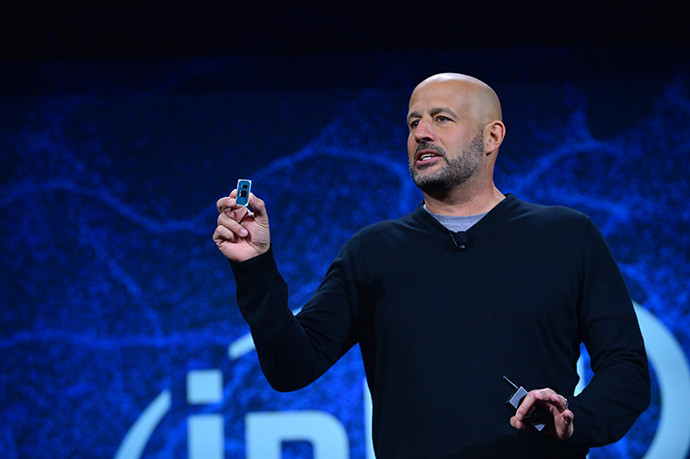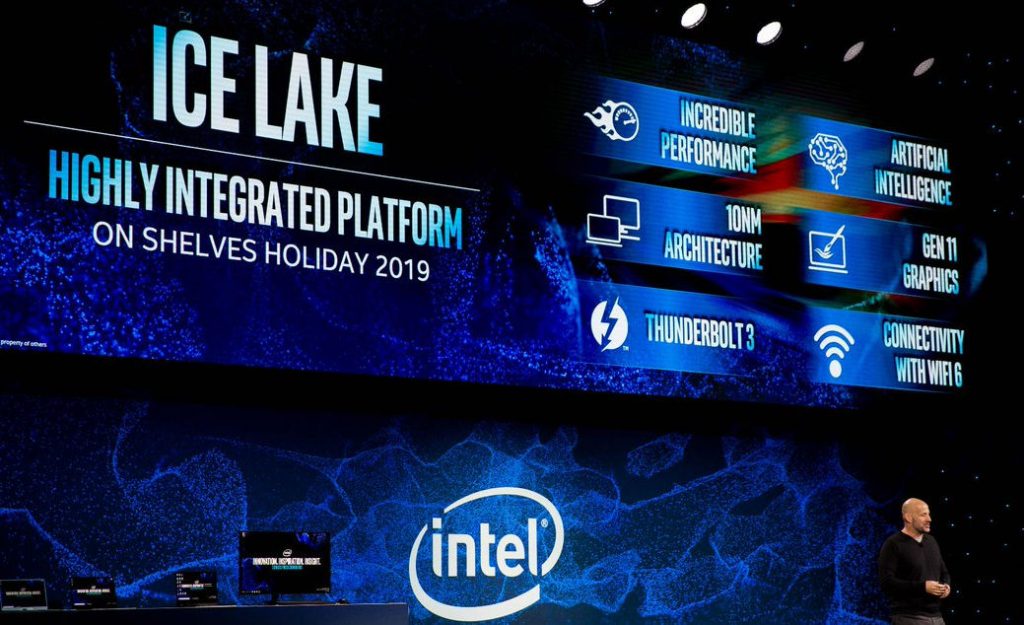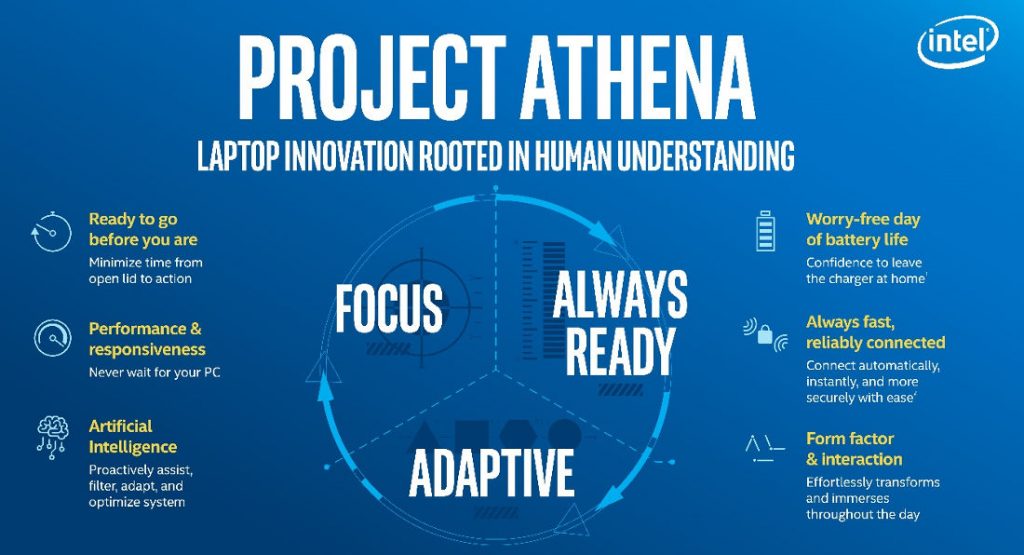
Intel at the CES 2019 announced Ice Lake, next-generation 10nm PC platform, Project Athena, an innovation program to deliver a new class of advanced laptops with 5G and artificial intelligence, and previewed a new client platform code-named Lakefield.

The Intel ‘Ice Lake’ mobile PC platform will be the company’s first volume 10nm processor built on Intel’s new Sunny Cove CPU microarchitecture detailed last month. Ice Lake is the first platform to feature the all-new Gen11 integrated graphics architecture, support Intel Adaptive Sync technology, enabling smooth frame rates and capable of more than 1 TFLOP of performance for richer gaming and creation experience.
It is also the first to integrate Thunderbolt 3 and the new high-speed Wi-Fi 6, based on the 802.11ax standard w as a built-in technology, as well as feature Intel DL Boost instruction sets to accelerate artificial intelligence (AI) workloads.
This promises incredible battery life to enable super-thin, ultra-mobile designs with world-class performance and responsiveness. Devices are expected to ship sometime later this year.

The new Intel client platform, code-named ‘Lakefield’ that was previewed at the event features a hybrid CPU architecture with Intel’s new innovative Foveros 3D packaging technology. It has five cores, combining a 10nm high-performance Sunny Cove core with four Intel Atom processor-based cores into a tiny package that delivers low-power efficiency with graphics and other IPs, I/O and memory. This will offer OEMs more flexibility for thin and light form factor design, thanks to smaller board, while maintaining long battery life, performance and connectivity. Intel said that Lakefield will go into production this year.
Intel also announced Project Athena, aimed to help bring to market a new class of advanced laptops to enable new experiences and capitalize on next-generation technologies, including 5G and artificial intelligence. This promises world-class performance, battery life and connectivity in sleek, beautiful designs.
Project Athena creates a path forward to accelerate laptop innovation through:
- An annual spec outlining platform requirements
- New user experience and benchmarking targets defined by real-world usage models
- Extensive co-engineering support and innovation pathfinding
- Ecosystem collaboration to accelerate key laptop component development and availability
- Verification of Project Athena devices through a comprehensive certification process

The first Project Athena laptops are expected to be available in the second half of this year across both Windows and Chrome OS operating systems.
At the CES, Intel also said that it is expanding its decadelong investment in network infrastructure with new 10nm-based network system on chip (SoC), code-named ‘Snow Ridge’ that has been developed specifically for 5G wireless access and edge computing.
It has also started revenue shipments of its next-generation Intel Xeon Scalable processors, code-named ‘Cascade Lake’ that has support for Intel Optane DC persistent memory and Intel DL Boost, which is designed to accelerate AI deep learning inference. Cascade Lake is expected to be broadly available in the first half of this year.
